This Spark Statin letter was written to my 13 year old grandson, the one who had just discovered how wonderful reading was and to whom I suggested using a common place book. It is a good example of how with just a small bit of research a grandparent, aunt or uncle, good friend or anyone can enrich a child’s life and learning experience.
In fact, you can use a Spark Station letter to begin a great Spark Station experience, even if you are living with the child. Just send a letter about something that you are interested in, like this letter I sent to Kane about the movie Invictus and Nelson Mandela. Then make sure that you have put some wonderful items in your Spark Station to inspire them. You could add a few great books on South Africa, materials to make a craft that you would find in South Africa, a map of Africa, showing where South Africa is located, and maybe a recipe to cook a traditional food.
It has been my experience with my own grandchildren that they do love getting “real” letters and that they like learning new things through them. They especially love them if you can tie them into what is happening in your life or family. Enjoy the read like my grandson did.
Dear Kane,
Last night grandpa and I went to see a movie called “Invictus”. I hope that if you haven’t seen it that you will be able to. I was so moved by the movie and the thing that I think is most wonderful about it is this – when we come face to face with greatness we can become greater ourselves.
I don’t know if you know much about Nelson Mandela or what Mandela did. When I was 14 years old there was much trouble in South Africa and he was sent to prison. I heard about that but I didn’t think much of it. I should have cared more. Since then I have heard about him over and over. He spent 27 years in prison and was released in 1990. That all happened before you were even born. However, this is a great man to know about.
Mandela was an anti-apartheid activist. Apartheid was a system of legal racial segregation in South Africa between. The rights of the majority black inhabitants of South Africa were curtailed and minority rule by whites was maintained. Residential areas were segregated and many black families had to move out of their homes and away from other family members. The blacks were deprived of their citizenship and had to register with one of ten tribes and they had to go live in that area. Blacks had to have a pass to go from one area to another and they had to have it with them all the time. That reminds me of what happened to the Jews in Germany before the great war started. It was one thing Hitler did to maintain control over the Jews.
The government segregated education, medical care, and other public services. It was very harsh and made life difficult for many people. Blacks didn’t have TV until 1975 because the government considered it dangerous. Imagine!!
There was a lot of unrest and violence over the issue. I remember seeing in the paper that sometimes a tire would be put over a persons head, onto his neck, and then set on fire. It was called necklacing. What a terrible thing and a terrible time. It made me afraid when I was a girl.
In prison, on Robben Island, Mandela broke rock and did other hard jobs. It was really hard work. The government was afraid of the
love that the black people had for Mandela and so they said he was committed to violent revolution, but to appease black opinion the government moved Mandela from Robben Island to a prison in a rural area just outside Cape Town, Pollsmoor prison, where prison life was easier and more pleasant. And the government allowed Mandela more visitors, including visits and interviews by foreigners, to let the world know that Mandela was being treated well.
The African President suffered a stroke and the new President F.W.de Klerk told the country that he was going to change some of the restrictive laws and let Mandela go. In 1990 that is what happened. In 1994 the country had their first democratic election where everyone was able to vote and Mandela won.
That is what the movie is about, what happened after the election and how Mandela worked to get rid of the hate between blacks and whites in his country.
After 27 years in prison you would think that Mandela would want some revenge. You would also think that as a black man he would want to hire all blacks, be with blacks and punish whites. Well that isn’t what he did or wanted. He was like George Washington. What he wanted was for his country to have peace, to become strong and united. So he put away his own grief and loss and worked on that. He used the sport of rugby to bring about a huge change. I don’t want to spoil the movie but it was so good. I do want to share the poem that is talked about in the movie.
While Mandela was in prison he was able to read some books from the white culture. He wanted to know the enemy that he was
fighting. What he learned instead was about great men, who had public and private virtue, in other words they did what was right because it was right not just because it was politically correct or economically good. He read a speech by Theodore Roosevelt that he liked. It helped him through 27 long, discouraging years. In the movie they use the poem Invictus instead of what Teddy Roosevelt said but I really like this poem and it made a good title for the movie. : )
In real life what Mandela handed to Coach Pienaar at the World Cup Rugby Tounament was an extract from Theodore Roosevelt’s “The Man in the Arena” speech from 1910. Here is what that quote said “It is not the critic who counts; not the man who points out how the strong man stumbles, or where the doer of deeds could have done them better. The credit belongs to the man who is actually in the arena, whose face is marred by dust and sweat and blood; who strives valiantly; who errs, who comes short again and again, because there is no effort without error and shortcoming; but who does actually strive to do the deeds; who knows great enthusiasms, the great devotions; who spends himself in a worthy cause; who at the best knows in the end the triumph of high achievement, and who at the worst, if he fails, at least fails while daring greatly, so that his place shall never be with those cold and timid souls who neither know victory nor defeat.”
However, I really like the poem also, so here it is.
INVICTUS
Out of the night that covers me,
Black as the pit from pole to pole,
I thank whatever gods may be
For my unconquerable soul.
In the fell clutch of circumstance
I have not winced nor cried aloud.
Under the bludgeonings of chance
My head is bloody, but unbowed.
Beyond this place of wrath and tears
Looms but the Horror of the shade,
And yet the menace of the years
Finds and shall find me unafraid.
It matters not how strait the gate,
How charged with punishments the scroll,
I am the master of my fate:
I am the captain of my soul.
This poem was written by the English poet William Ernest Henley. Invictus is Latin for “unconquered”.
In high school I read the book Think and Grow Rich by Napoleon Hill. In that book he used “I am the master of my fate, I am the captain of my soul” as a motivational tool to encourage the reader to take charge of his life. That is what I have always believed the poem was about, that we need to take responsibility for our reaction to the tough places in our life.
Victor Frankel was a Jewish doctor who spent a lot of time in a Jewish concentration camp. He wrote a book called “Man’s Search for Meaning” after he was released from the camp. In it he talks about why some people do well in trying circumstances and why some don’t; why some people become better and some become wicked. I loved that book and read it while still in High School. See, I told you that I was different from most kids. I really did like to read and read many things that none of my friends would have ever thought of.
Well, one of my favorite ideas on life came from reading that book. He said that no one can take away how you will respond. They can take everything else away, your food, clothes, home, dignity, health, and even freedom; but they can’t take away how you choose to act. That is what Mandela did after he was free. They had taken everything away from him. He even lost his family. But when all was said and done he chose how to act. He choose to have private virtue.
You will love the movie.
I hope that all is going well for you. I hope that you are really doing your school work because it is important to learn. However, I hope that you are still reading lots of good books. That is where the best education comes from – self education. Email me and tell me what you are reading now and what you think about it.
Love,
Grandma
Possibly Related Posts:
- Ways to Become the Best Grandparent Ever
- Closet letter on Proverbs and Genealogy for children
- A Spark Station letter – What is an onomatopoeia and using the mail to inspire
- A Spark Station Letter – Remember what you read using commonplace books
- A lovely Valentine Letter from Grandparents
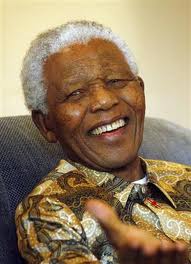
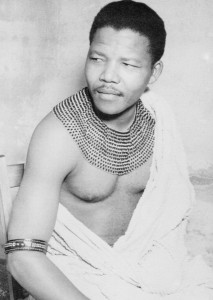
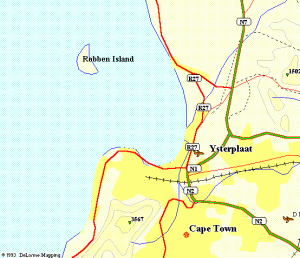
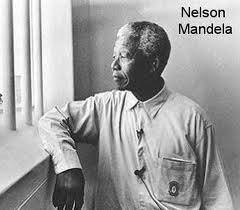
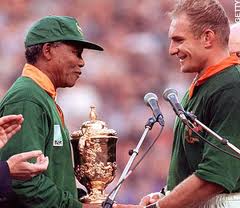



{ 0 comments… add one now }